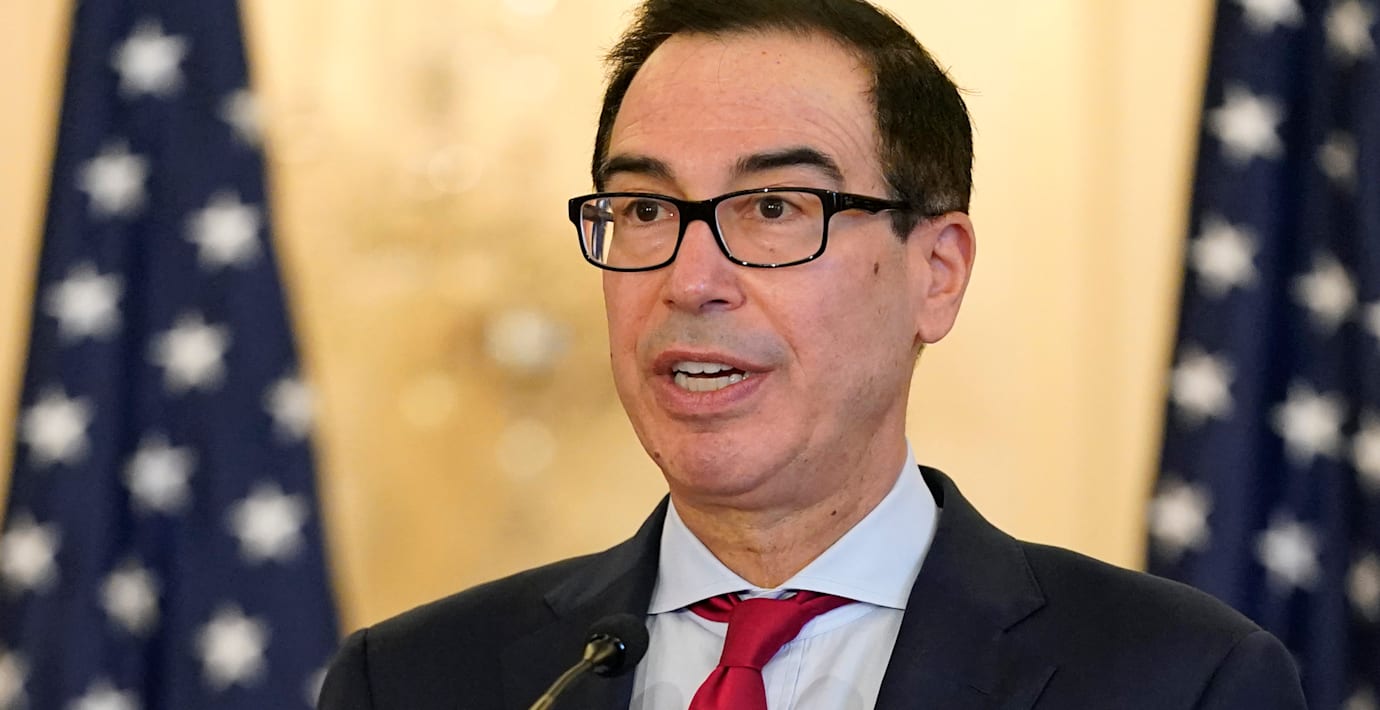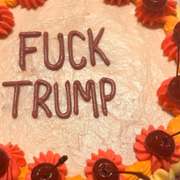
Mnuchin: Skatter, Iran och tullar viktigast för Trump
Donald Trump kommer sannolikt att prioritera handelstullar, skattesänkningar och sanktioner mot Iran och Ryssland. Det säger Trumps tidigare finansminister Steven Mnuchin i en intervju med CNBC.
Att sänka skatterna är mycket centralt för Trump, menar han.
– Jag tror det kommer att bli ganska lätt att få igenom det i kongressen, säger Mnuchin till kanalen.
Den tidigare ministern tror att tullarna blir nödvändiga för att få handelspartner till förhandlingsbordet. Det gäller inte minst Kina, som inte levt upp till alla överenskommelser, säger Mnuchin.
Läs också
bakgrund
Trumps tullar
Wikipedia (en)
The Trump tariffs (sometimes referred to in media as the Trump-China trade war) were protectionist trade initiatives during the Trump administration against Chinese imports. During the presidency of Donald Trump, a series of tariffs were imposed on China as part of his "America First" economic policy to reduce the United States trade deficit by shifting American trade policy from multilateral free trade agreements to bilateral trade deals. In January 2018, Trump imposed tariffs on solar panels and washing machines of 30 to 50 percent. In March 2018, he imposed tariffs on steel (25%) and aluminum (10%) from most countries, which, according to Morgan Stanley, covered an estimated 4.1 percent of U.S. imports. In June 2018, this was extended to the European Union, Canada, and Mexico. The Trump administration separately set and escalated tariffs on goods imported from China, leading to a trade war.
The tariffs angered trading partners, who implemented retaliatory tariffs on U.S. goods. In June 2018, India planned to recoup trade penalties of $241 million on $1.2 billion worth of Indian steel and aluminum, but attempted talks delayed these until June 2019 when India imposed retaliatory tariffs on $240 million worth of U.S. goods. Canada imposed matching retaliatory tariffs on July 1, 2018. China implemented retaliatory tariffs equivalent to the $34 billion tariff imposed on it by the U.S. In July 2018, the Trump administration announced it would use a Great Depression-era program, the Commodity Credit Corporation (CCC), to pay farmers up to $12 billion, increasing the aid to $28 billion in May 2019. The USDA estimated that aid payments constituted more one than one-third of total farm income in 2019 and 2020.
Tariff negotiations in North America were relatively more successful, with the U.S. lifting the steel and aluminum tariffs on Canada and Mexico on May 20, 2019, joining Australia and Argentina in being the only nations exempted from the regulations. However, on May 30, Trump unilaterally announced his intention to impose a five percent tariff on all imports from Mexico beginning on June 10, with tariffs increasing to ten percent on July 1, and by another five percent each month for three months, "until such time as illegal migrants coming through Mexico, and into our Country, STOP", adding illegal immigration as a condition for U.S.-Mexico tariff negotiations. The move was seen as threatening the ratification of the United States–Mexico–Canada Agreement (USMCA), the North American trade deal set to replace the North American Free Trade Agreement (NAFTA). The tariffs were averted on June 7 after negotiations.
A May 2019 analysis conducted by CNBC found Trump's tariffs are equivalent to one of the largest tax increases in the U.S. in decades. Studies have found that Trump's tariffs reduced real income in the United States, as well as adversely affecting U.S. GDP. Some studies also concluded that the tariffs adversely affected Republican candidates in elections.
Omni är politiskt obundna och oberoende. Vi strävar efter att ge fler perspektiv på nyheterna. Har du frågor eller synpunkter kring vår rapportering? Kontakta redaktionen



